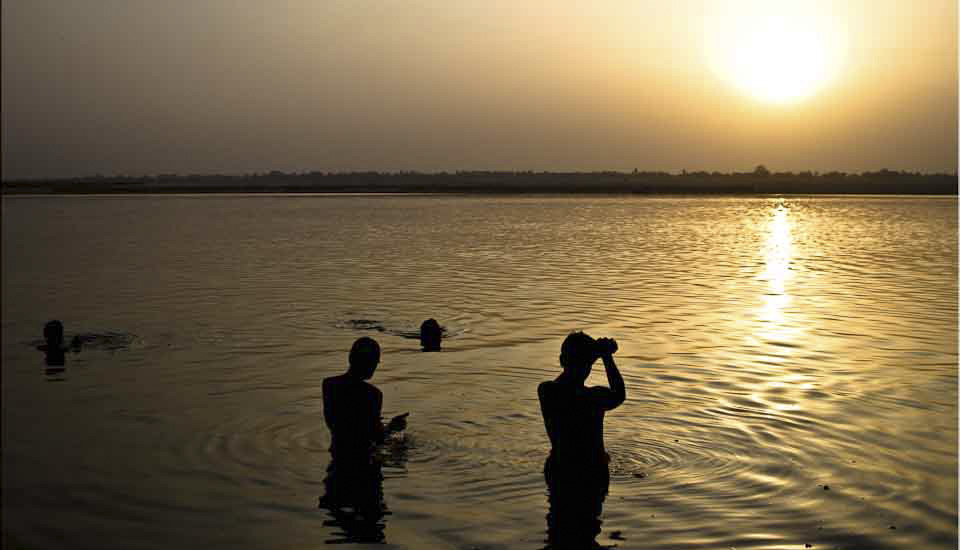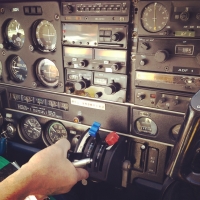.jpg)
Island in the Inlet
They call it the Butze Rapids Trail, but the water in Morse Basin was glassy calm when I walked around Butze Point, just outside Prince Rupert in Canada’s western province of British Columbia (BC).
There are few things I find more restorative than a walk in green woods with a waterway nearby. And, there are no shortage of walks through the lush, wet, woods in British Columbia (BC) in the Canadian West!
On this particular late-spring day, I was staying in Prince Rupert, a small port city on BC’s northwest coast. I had arrived there by BC Ferry, via their 16 hour service up the deep and sheltered waterways of the Inside Passage from Port Hardy (see: Up Canada’s Inside Passage). After catching up on sleep – we had arrived into Prince Rupert very late at night – and carrying out domestic tasks around town, like laundry and groceries, I was ready for some recreational walking.
I was spoiled for choice: Prince Rupert is nicknamed the Rainforest City. As Canada’s wettest municipality, it is surrounded by plenty of wet woods, criss-crossed with trails.
The Butze Rapids Trail is an easy 5.1 km (3.17 m) circuit around Butze Point. There are plenty of signs to help you identify the various plants along the way, but I can no longer remember which of the conifers are western red cedars (Thuja plicata), and which are yellow cedars (Callitropsis nootkatensis). Both cedars are found here; both were of great importance to the original inhabitants in this region, and both are still commercially valuable. Sitka spruce (Picoa sitchensis), Pacific silver fir (Abies amabilis), and shore pine (Pinus contorta var. contorta) all thrive here as well – and all seemed to be draped in mosses and lichens in every shade of green.
The walk is close to water on three sides. One reviewer (see: Visit Prince Rupert) recommends checking the tide tables to take advantage of the rapids – but my time was limited, so I took what came!
Join me:
.jpg)
Greens
The walking track itself is beautifully maintained. The surrounds at the start of the track, however, are a bit haphazard and scruffy. The range of greens in the landscape – from blue through yellow and brown – can play havoc with the camera’s white balance.
.jpg)
Western Skunk Cabbage – Lysichiton Americanus
The ground either side of the path is lush and green. At one point I passed a patch of skunk cabbage. Fortunately, these are not in bloom, and the leaves don’t emit as much skunky odour as the flowers do.

Nature’s Artworks
The sculptural forms that the tree trunks make never cease to amaze me.

Wolf Notice
This gave me pause! As much as I love to see wild creatures, I’m not sure how I would cope with a wolf (or bear) if I met one. (iPhone12Pro)

Mossy Stumps
More sculptural forms adorn the path.

A Chip-Covered Path
This is typical temperate rainforest, with layers of lush foliage at ground level, and tall trees rising to the sun. The ground is soft and silent underfoot.

Old Man’s Beard – Usnea Longissima
This slow-growing lichen prefers environments with low levels of air pollution. It hangs on the branches of conifer trees …

Mossy Trunk
… and – along with other lichens and mosses – adorns their trunks.

Tangled Roots and Branches
Sections of the forest are a gnarling, twisting mass of roots and branches, …

Layers of Woods
… while in other parts, the trunks rise straight and tall as the trees reach for sunlight.

A Curve in the Path
The forest opens up, giving views over young growth either side of the path, and through to the snow-covered mountains in the distance.

Colourful Pine Needles
We might call them evergreens, but shore pines (Pinus contorta) lose some of their old needles in early summer. The tree reclaims the nutrition in the chlorophyll before casting the needles off – causing the needles to change colour before they drop.

Male Pine Cones
Shore pines have typical woody female cones with seeds in them; these are the short-lived, pollen-bearing male cones, with their elongated “candles.”

“Butze Rapids”
It was close enough to slack tide, so it wasn’t very dramatic when I reached the point where the reversing tides through Fern Passage around Kaien Island cause regular rapids.

Mossy Fingers
The shapes of the fallen trees, and the richness of their moist, mossy coverings, keep catching my eye.

Morse Basin
Waterways that may look like rivers and lakes are often inlets off the Pacific. This landscape is ruggedly punctuated by deep indentations – one of the reasons that First Nations peoples traditionally relied on their canoes. Even today, ferries and barges are an essential part of everyday transport.

Tidal Coast Terminals
In these working waterways, businesses dot the shoreline.

Aging Stumps
Back in the shadowy-cool of the forest, more uniquely shaped stumps play host to moss, lichens, and new growth.

Seaweed
These are salinated, ocean waters, so seaweeds and sea creatures abound in the rockpools that line the shore.

New Growth – Old Stump
In the damp shadows, mosses and new plants find nourishment in rotting wood.

Patterned Tree Trunk

Through the Branches
The path skirts back close to Morse Inlet, and I can see the water through the trees.

Cairns on the Shore

A Stump through the Trees
I think faeries might live here in these old cedar hollows.

Mosses and Plants on a Tree Trunk
There’s a magical miniature landscape all around me, and it’s a joy to walk through.

These BC woods are a joy – and I always feel better after a short walk through them!
Until next time,
Happy Walking
Pictures: 07June2022
































.jpg)

